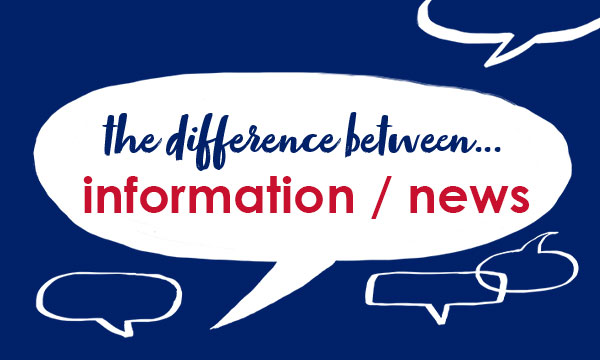This week we are looking at two words which may be confused by learners of English: information and news.
information

Information is facts that you learn or discover.
You can get more information about our products on our website.
Be Careful! Information is an uncountable noun. Don’t say `an information or `informations‘. You can say a piece of information.
I found out an interesting piece of information.
You give people information.
She gave me some useful information.
Use give, not `tell’. Don’t say `She told me some useful information.’
You refer to information about something or on something.
We don’t have any information about him.
I’m looking for information on the history of the town.
news

Don’t use `information’ to refer to descriptions of recent events in newspapers or on television or radio. Use news.
Our town was in the news when it was visited by the Pope.
The story was on the news this evening.
Find out more in our English Usage article.
This blogpost is based on Collins COBUILD English Usage, written for learners of English. For more examples of English usage points, please visit: https://grammar.collinsdictionary.com/english-usage.
All opinions expressed on this blog are those of the individual writers, and do not necessarily reflect the opinions or policies of Collins, or its parent company, HarperCollins.



